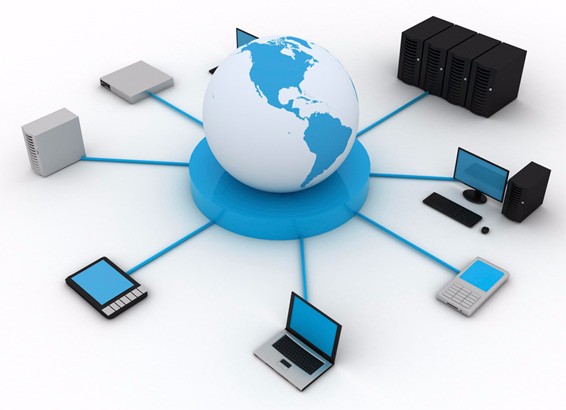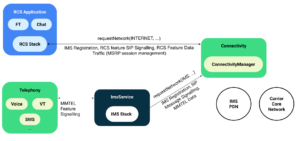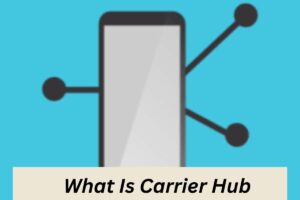Whether your business is online or not, or if it is big or small, virtually every company requires some type of Internet connection nowadays from a business internet services provider. At first glance it may seem as though all Internet Service Providers (ISPs) more or less offer the same options, but this is not the case. ISPs can differ not only in the type of services that they provide, but also in the quality and, of course, the cost.
The ISPs that are available to you will depend on your location and, generally speaking, each has something for everyone. But, with so many aspects to consider, how do you know what to look for? Well, there are a few important features that you will want to consider when selecting the right ISP for your business. For example, and beyond the cost of service, you will want to compare reputation, data security, reliability of service, network redundancy and service level agreement of each ISP that you are considering.
 On the whole, the existing ISP setting has never been better; with soring connection speeds and competitive pricing. While this is true, selecting the right ISP for your business is still a big and extremely important decision. Below, we break down everything you need to consider when choosing an Internet Service Provider for your business.
On the whole, the existing ISP setting has never been better; with soring connection speeds and competitive pricing. While this is true, selecting the right ISP for your business is still a big and extremely important decision. Below, we break down everything you need to consider when choosing an Internet Service Provider for your business.
First Thing’s First: Select a Connection Type
You’ll often come across the words “high-speed”, “fiber”, “Broadband” and “T-1” while shopping for an ISP. These are the different Internet connection types that offer bandwidth speeds that are faster than conventional dial-up. Below is an in-depth look at the most commonly available connection types offered to small, medium and large companies by ISPs.
Shared Connections: Cable, Broadband & DSL
“Up to” are usually the operative words used to describe the speed of a shared connection; for example, “can reach speeds up to 45 meg”. With a shared connection, your speed relys on how many subscribers an ISP has around your area. In theory, you could experience a full speed connection if your ISP did not have any other users in your area.
The advertisements that you see will only feature the download speed as these are substantially faster than the upload speed on a shared connection. Additionally, you will observe fluctuations in the speed with shared connectivity.
DSL
Also known as Digital Subscriber Line, employs conventional phone lines to send data through the Internet. In terms of cost, it is usually the most inexpensive option available but connection performance should be considered as it can be inconsistent. For instance, the speed and quality of your DSL service is dependent upon how far away you are from the ISP’s head office. The farther the distance, the less reliable and sluggish the connection will be.
Broadband
This term is used to refer to cable and DSL interchangeably, depending on the company.
Cable
As one of the most common connections available, it is provided by your cable television provider and runs through coaxial cable TV lines. This type of connection is typically very reliable in terms of speed and quality and is not affected by distance from the ISP’s exchange.
Private Connections: Fiber, Satellite & T-1(s)
Fiber
Using light to send data over an optical network, Fiber is, by far, the fastest (starting at 10 megs) and highest quality Internet connection around. This type of connection is relatively new for end-users, but has been used by telecommunication companies for a while now. Although Fiber is the best connection option, in terms of performance, it is not as readily available as the others. However, it is an excellent option for a business of any size.
Satellite
Initially established as a connection solution for remote locations, satellite is a solid choice for quality Internet. Nowadays, satellite Internet service providers are available in the suburbs as well as the city and, very usually, offer greater bandwidth than other common connection options.
T-1
This is a private connection which means that it would only be used by your company. Additionally, and unlike a shared connection, T-1 is symmetrical meaning that the download and upload speeds are the same. They are available in increments of 1.5 meg (i.e. 1.5, 3.0, 4.5 and 6.0) and can be tailored to your business needs.
Now that you are familiar with the various connection options available, you will also want to consider the following before making a final decision on which ISP you want to commit to:
- Do you use large files regularly?
- Does your business work with an FTP site?
- Do you use video streaming services?
- Are cloud-based applications used by your business?
- How important is absolute reliability to your business?
- Do you have the option of bundling services? If so, should you?
- What are the ISP’s security features?
- How much customer support do you require?
- What kind of Service Level Agreement are you willing to accept?
These are a lot of details to take in and consider when deciding on an Internet Service Provider for your business. But, not to worry, you don’t have to make the decision on your own. If you still have questions about selecting an ISP then contact BroadConnect Telecom for expert advice. Additionally, we are proud to offer a Phone System Audit service for free. We will review and analyze your current monthly bill and recommend cost and service solutions that BroadConnect Telecom can offer, and that are best suited for the needs of your business.
As a final note, it is imperative that you seriously consider the level of security and customer support that your next potential ISP offers. Since outages and other technical issues can arise, it is vital that your business uses an ISP that is responsive and able to troubleshoot right away. Your employees and customers will thank you for it!






More Stories
How to Effectively Remove ChocoEukor from Your Android Device
From Pixels to Perfection: Mastering the Art of Web Design
How to Stop TinyTask: 10 Effective Techniques for Gamers and Tech Enthusiasts